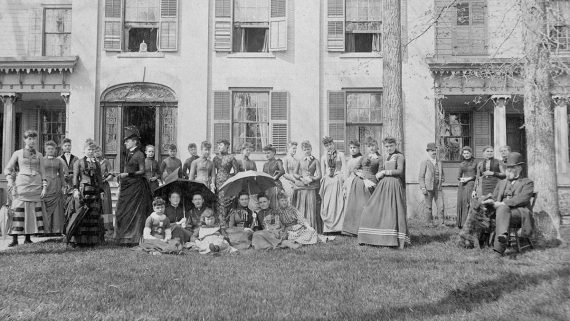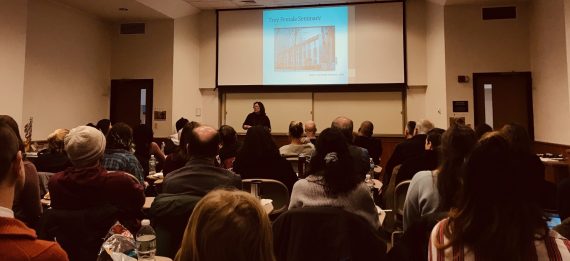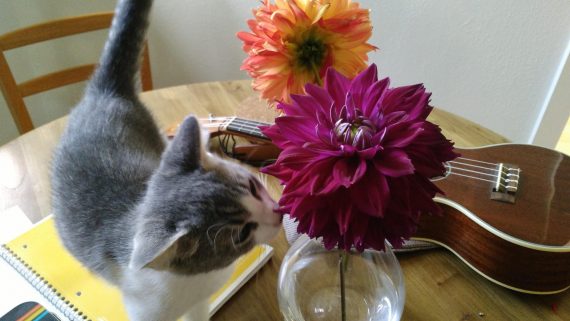
I traveled to the University of Bath to look at the A. K. Chesterton Collection as I work on my Colgate University undergraduate thesis. I am studying Chesterton’s relationship with fascism in his later years of his life, when he formed the League of Empire Loyalists (LEL) and later presided over the National Front. Research has been done on the early years of Chesterton’s life and the initial developments that may have led him to adopt fascist ideology. However, I’m more interested in whether or not there truly was a definitive split from fascism, as Chesterton himself claims. Understanding his LEL years may provide some important insight.
When researching the LEL, I was surprised to stumble upon a scrapbook that had been compiled by LEL members. The LEL preferred to lobby by unconventional means, such as political stunts. They would often interrupt Tory Party Conferences with cries of “Save the Empire,” and “Tory Traitors,” and were avidly followed by the press. The scrapbook contained many clippings from these stunts. It is clear that the LEL operated in any way possible that would mean the front cover of the newspaper as its goal was to raise public awareness and influence Conservative policy relating to the Empire.
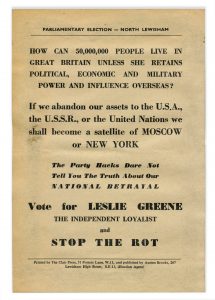
The scrapbook also contained strategies for the stunts as well. While the stunts of the LEL were widely reported, the group never reached more than 3,000 members. This was far below Chesterton’s goal, which was 20,000 members. Despite the fact that Chesterton never had ambitions for the LEL to become a party, some members did run for seats in Parliament. One such member, Leslie Greene, ran in the North Lewisham Parliamentary Election as an “independent loyalist candidate”. She lost miserably, only garnering 1,487 votes. Her opponents, Labour candidate Niall MacDermot received 18,516 votes and Conservative candidate Norman Farmer received 17,406 votes.
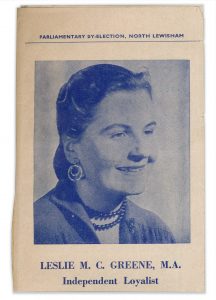
Despite the abundant press coverage of the stunts of the LEL, many of which are glued to the pages of this scrapbook, the LEL never became a prominent force, eventually merging with the British National Party, the Greater Britain Movement and the Racial Preservation Society to form the National Front in 1967. Despite the short life of the LEL, studying Chesterton’s leadership during this time will allow me to evaluate his relationship with fascism in the later years of his life. Chesterton’s time with the LEL is a crucial period in the development of his political ideology and his LEL years may have represented his altered relationship with fascism. The opportunity to review the LEL scrapbook made the research process for my thesis all the more interesting!
…
Article by Anna Pluff ’20, originally published on the University of Bath ‘Cabinet of Curiosities’ library page, linked below.
http://www.bath.ac.uk/library/cabinet-of-curiosities/#!/story/30



